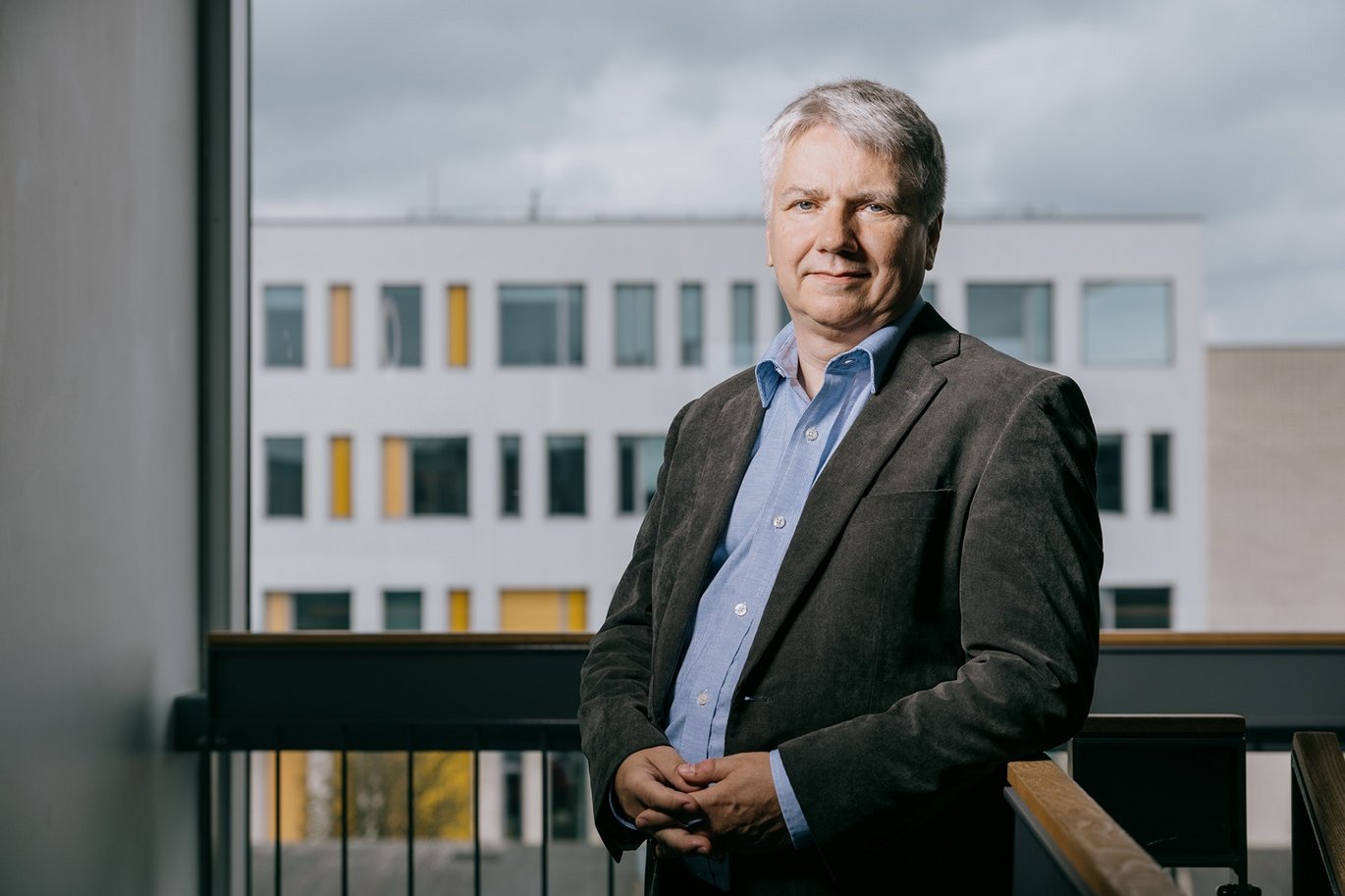New professor in cyber security: We’re more vulnerable than most people realise
Modern cybercrime has become more sophisticated. Technological developments and the threat landscape have changed dramatically over just a few years, and if we want to protect our digitalised society, we need to approach cyber security in a whole new way.

The words are those of Christian Damsgaard Jensen, newly appointed professor at the Department of Electrical and Computer Engineering at Aarhus University.
"It no longer makes sense to think about cybersecurity as purely a technical issue. Those days are over. Cyberattacks are getting increasingly complex and targeted. If we want to prevent cybercrime in the future, we need a much more interdisciplinary approach that encompasses the technological, social and legal aspects of cybersecurity," he says.
This motivated Christian Damsgaard Jensen to accept a professorship at Aarhus University after 22 years of cyber security research at the Technical University of Denmark, DTU.
"Aarhus University offers a different framework for my research. The university has strong academic environments in computer science, engineering, anthropology, economics, law and psychology, and I consider one of my most important tasks as a professor to develop cybersecurity as a multidisciplinary science," he says.
As a professor at Aarhus University, he will also be responsible for developing all the engineering programmes in computer and electrical engineering; a responsibility he is dedicated to meeting.
"We have to move fast on this one. We’re more vulnerable than most people realise, and there’s an urgent need for trained engineers who can go out into society and help build much more robust security for our digital systems. In order to do this, they need a deep theoretical understanding of the computer technology behind cybersecurity, and they must be able to apply their knowledge intelligently and always keep the human factor in mind. Us human users are often the weakest link in IT security," he says.
Trust equals cyber resilience
Denmark is one of the most digitalised countries in the world, and we have moved large parts of our communication, supply structure, economy, businesses and public sector to digital platforms. This makes Denmark more efficient and increases the international competitiveness of our businesses, but it also makes us a prime target for cybercrime.
Every website, email, app or smart device that we connect to the internet is a potential entry point for cybercriminals. It is therefore vital that Denmark stays ahead in technology development if we are to prevent cyberattacks, according to Christian Damsgaard Jensen.
"Hackers and cybercriminals can exploit vulnerabilities in our digital systems and steal our data, extort businesses or disrupt the functioning of society. Just think about how critical a power outage can be."
Christian Damsgaard Jensen will build a new research group within cybersecurity at Aarhus University. The group's work will help strengthen the cybersecurity and information security ecosystem in Denmark through Security Tech Space, an Aarhus-based national collaboration between knowledge institutions, companies and authorities.
"In recent years, such things as spoofing technologies have become accessible to everyone. This means that our digital trust is even more challenged by potential fraudsters using artificial intelligence, for example, to both look and sound like a specific person. We need to stay one step ahead of the criminals at all times, and this requires intensive research collaboration and intensive collaboration with authorities and companies to get new security technologies out and working in society," he says.
However, one question remains: What’s the solution?
“It’s complex,” says the new professor, “there’s no single answer. We need to take action on many fronts, but what’s most crucial in my opinion is that we work together across scientific disciplines. We have to understand that all systems are socio-technical and that we have to design and adapt our security technologies to people, not the other way around.”
A democratic dilemma
Christian Damsgaard Jensen also has more specific proposals for how to improve IT security in Denmark.
"First, we need to be better at developing robust security systems from scratch. That is IT infrastructure that is well-guarded by design but that can also tolerate disruption and can recover quickly from an attack. Secondly, we need to get better at monitoring our systems and collecting data that allows us to detect and track criminal behaviour," says Christian Damsgaard Jensen.
He continues, "The last point is probably the most difficult for us, because it entails a huge democratic dilemma. How do we find the right balance between monitoring and control on the one hand and protecting the right to privacy of individuals on the other? This is something we researchers have to consider at all stages of technology development".
Invitation to Inagural Lecture
Continued digitalization of our society requires two things: The ability to trust our digital systems (incl. computers and network infrastructures, software and services), and our ability to build trust in other entities across digital systems. This inaugural lecture will explore these problems and identify models, policies and mechanisms from the fields of computational trust management and cybersecurity that help address these problems.
Friday 22 November 2024 from 14.00 to 16.00
Aarhus University, Åbogade 15, 8200 Aarhus N Incuba, Lille Auditorium, Building 5510
Program
14:00 Welcome by Jens Bennedsen,Professor (Docent) and Head of Software Engineering and Computing Systems at Department of Electrical and Computer Engineering, Aarhus University.
14:10 Inaugural lecture “Trust in Digital Systems”
15:00 Reception Registration
To assist us in planning the event, please confirm your participation
